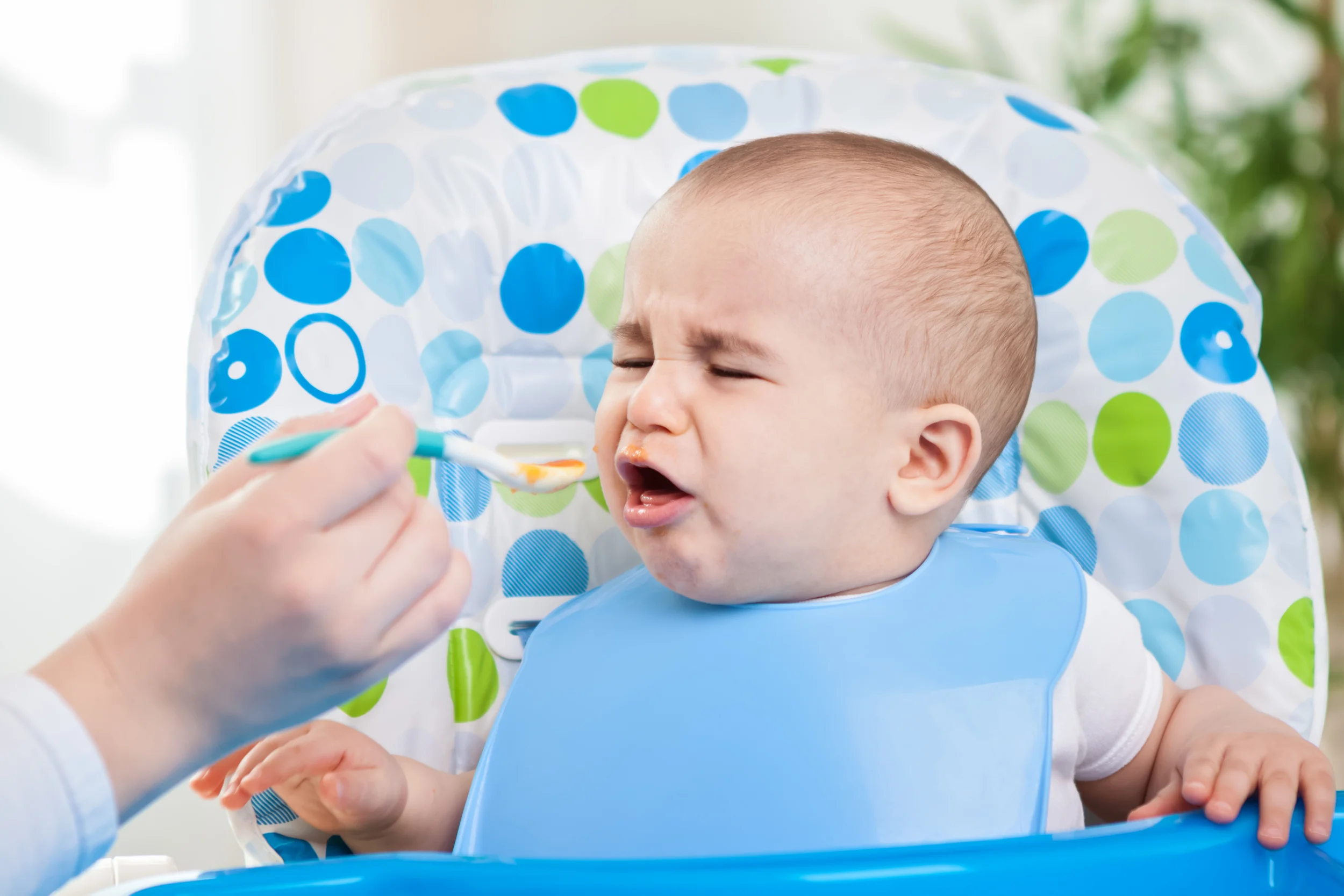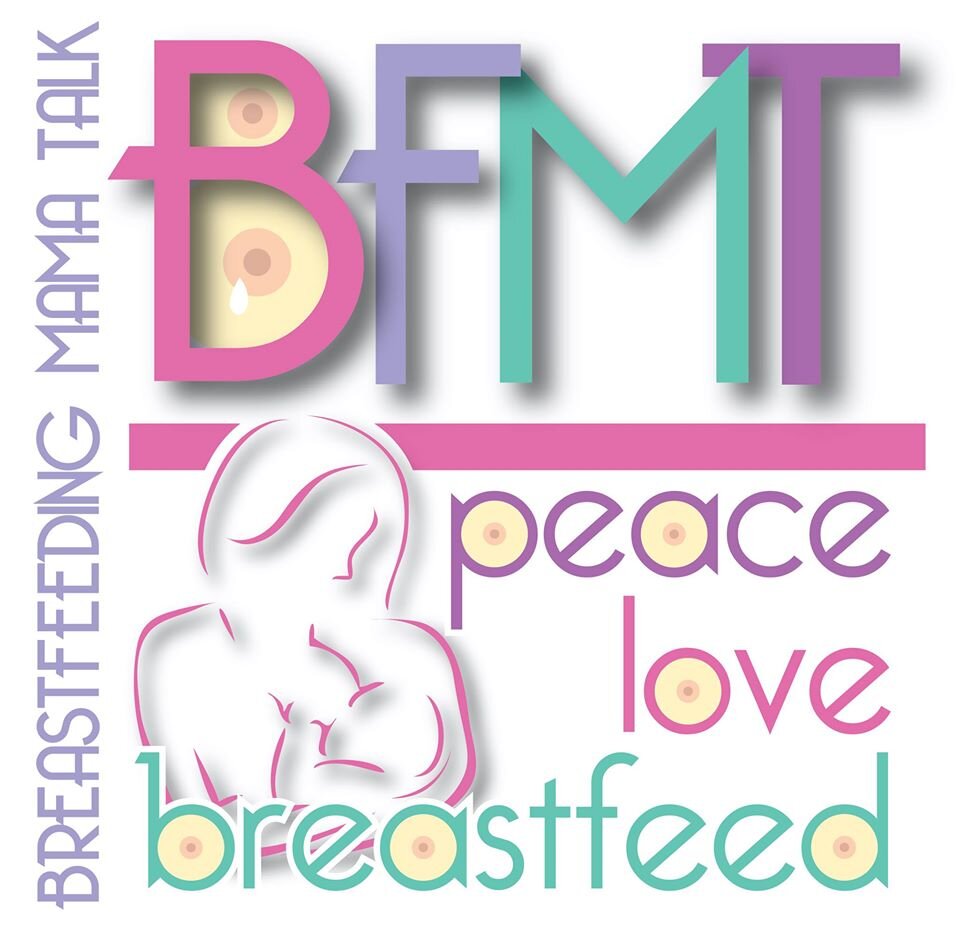Skip The Baby Cereal- Why Solids Before Six Months Is Not Needed...

The following organizations recommend that all babies be exclusively breastfed (no cereal, juice or any other foods) for the first 6 months of life (not the first 4-6 months):
American Academy of Pediatrics
American Academy of Family Physicians
How could something as harmless as rice cereal be potentially dangerous?
Feeding a baby that is under 6 months old ANY SOLID food COULD BE dangerous, and rice cereal is often the first solid food parents will offer their baby. First and foremost Most babies under 6 months has a digestive system that is not fully developed; therefore anything other than breast milk or formula will NOT be digested properly. So, while that little bite of mashed potatoes or rice cereal seems harmless enough it could POTENTIALLY be damaging to the baby's digestive system. All that a baby NEEDS, to properly nourish them is breast milk or formula until 6-12 months of age. The reason we are focusing on rice cereal or any baby cereal for that matter, is because it lacks the nutrition, so adding it reduces the nutritional density of their diet. It is safe, however, to start introducing solids to babies beginning at 6 months, but it is generally unnecessary. Breast milk will change as the baby grows, offering them everything they NEED for complete nourishment. If the formula is not giving them the needed nutrition, as it never changes, then only the parents and a nutritionist can decide together what it is the baby needs to add to their diet in order to properly nourish them. [1]
Saying that YOU fed YOUR baby rice cereal under 6 months and they ended up fine isn't a valid argument. There is no need to justify or explain why you do what you do. I realize all babies can develop at a different rate, but the general rule is that breastmilk & formula is all that is needed for the first 6 months of life. If you feel your baby is showing signs that they are ready for solids look into Baby Led Weaning.
"Health experts and breastfeeding experts agree that it’s best to wait until your baby is around six months old before offering solid foods. There has been a large amount of research on this in the recent past, and most health organizations have updated their recommendations to agree with current research. Unfortunately, many health care providers are not up to date in what they’re telling parents, and many, many books are not up to date." [1]
Rice cereal potentially could cause-
- ~Obesity- Dr. Alan Greene, a pediatrician at Stanford University, actually equates feeding white rice cereal with feeding a baby sugar or soda, according to ABC News. Dr. Joseph Mercola, a natural health expert, agrees that giving babies white rice cereal could lead to diseases such as heart disease and diabetes, due to an increased risk of obesity when infants taste starch as a first food and therefore grow up craving foods made from white flour, such as breads and cakes. [4]
- ~Constipation- Rice cereal is usually fortified with iron, but some experts argue that all that extra iron isn't needed in infants if they are otherwise well nourished and too much iron can cause constipation. According to KellyMom, babies who are breastfed for the first six months of life per the American Academy of Pediatrics guidelines may not need additional iron, unless the child's pediatrician determines that breast milk or formula alone isn't providing adequate iron.
- ~Lack Nutrients- Baby cereal is filling for babies, but it doesn't offer a great deal of beneficial nutrients for the amount of calories it provides. Your physician may still recommend rice cereal, especially if your baby is deficient in iron, of which it is a rich source. According to Dr. Greene, however, many babies are better served with brown rice cereal, since it is also rich in protein, essential fats and minerals. According to KellyMom oatmeal would serve as a better first choice because it offers more of a variety in nutrients and protein.
Adding cereal to the bottle is a choking hazard..
Mixing cereal in the milk & into a bottle is a choking hazard. If mothers insist the infant has rice cereal please hand feed it to them with a spoon. Some believe mixing cereal in with baby's milk will allow the baby to sleep longer as the baby will remain fully satiated. Babies need to eat every 2-3 hours because their little bodies need all that NUTRITION to grow. Feeding a newborn isn't just about trying to keep them full it's about getting them all of the nutrition they so desperately require to grow. Rice cereal has none of that nutrition. Rice cereal is simply empty calories. Therefore, feeding them rice cereal may have accomplished the task of getting them to remain satiated, but they are not getting the nutrition they need, and many doctors believe there are links to foods low in nutritional density (like rice cereal) to obesity, heart disease, and diabetes. [2]

Some parents feel as if their child NEEDS rice cereal because their baby spits up milk frequently.
Some mothers assume their baby has acid reflux and that rice cereal is the cure. New research shows that reflux is overly diagnosed and over treated, leading to a physical dependence to the PPI drugs (proton-pump inhibitor) and possible medical complications later. [3] Some think because their baby spits up after every feeding that it means their baby has reflux and the baby NEEDS the rice cereal. There could be a simpler solution, such as: try a different position when they are burped, mothers can change their diet if breast feeding, or change formula brands. There could be many different factors at play, so before introducing rice cereal or ANY solids, especially before 6 months, attempt a process of elimination first.
Feeding infants cereal or other grains before 6 months, does more than simply leave them with indigestible food. They are being fed an indigestible food in place of a nutrient-dense meal, something their body can’t use and depriving them of the nutrients they need to grow a healthy brain, nervous system, and bone structure.
Baby-led weaning is a method of adding complementary foods to a baby's diet of breastmilk or formula Baby-led weaning allows babies to control their solid food consumption by "self-feeding" from the very beginning of their experience with food. Read our article on Baby Led Weaning here...
Please Note- This article is meant to inform on information that has already been put out there. We have listed numerous resources below....
RESOURCES:
Gastroesophageal Reflux Disease: Over-Diagnosed and Over-Treated in Infants
CLICK HERE to get to the WHO fact sheets.
CLICK HERE for more info. from the WHO.
CLICK HERE to read about the risks.
http://thechart.blogs.cnn.com/2013/03/25/too-early-solid-food-could-lead-to-problems-for-babies/
CLICK HERE to see the governments take on solids.
http://www.nbcnews.com/health/worrisome-risk-most-babies-are-fed-solid-food-too-soon-1B9049487
http://www.nature.com/.../v34/n10/full/ijo2010101a.html
http://abcnews.go.com/Health/babies-receive-acid-reflux-meds-doc/story?id=14926271
http://www.thedoctorwillseeyounow.com/content/kids/art3497.html
http://www.webmd.com/heartburn-gerd/news/20090702/stopping-ppis-causes-acid-reflux-symptoms
Visit NBCNews.com for breaking news, world news, and news about the economy
Powered by Squarespace






